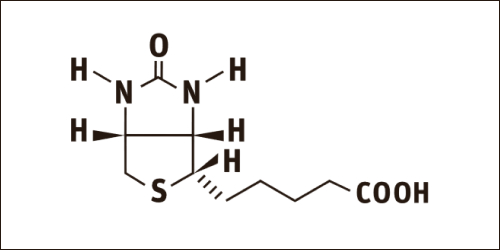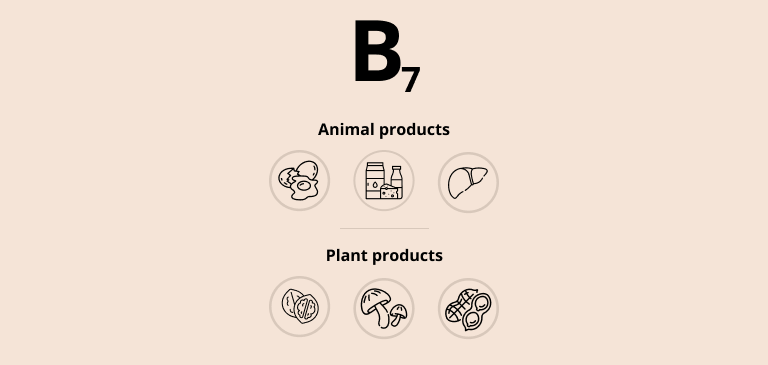Vitamin B7
Biotin | Vitamin H
Year of discovery: 1931 | Paul Gyorgy
Biotin plays an important role in metabolism as a carbon dioxide-carrying coenzyme. It is crucial in the conversion of food (carbohydrates, fats and proteins) to energy. Biotin is involved in many cellular reactions, especially in the metabolism of fats and proteins in hair follicles, nails and skin.
Main sources of vitamin B7
Eggs, milk, vegetables, cereals, nuts (almonds, walnuts, peanuts), liver, kidneys, yeast, soybeans. Other: synthesized by intestinal bacteria.
Bioavailability of vitamin B7
In food, biotin occurs in free form or bound to food proteins. The bioavailability of biotin depends on the ability of protein enzymes in the stomach to convert protein-bound biotin into free biotin. Biotin is not sensitive to light, heat or moisture.
Risks associated with insufficient or excessive intake of vitamin B7
Experts have not yet quantified the amount of biotin in foods of natural origin. Deficiencies caused by insufficient intake of it with food are rare in the healthy population. Symptoms of deficiency include general fatigue, nausea, neurological problems, poor skin and hair quality. No adverse effects have been reported from excessive biotin intake.




